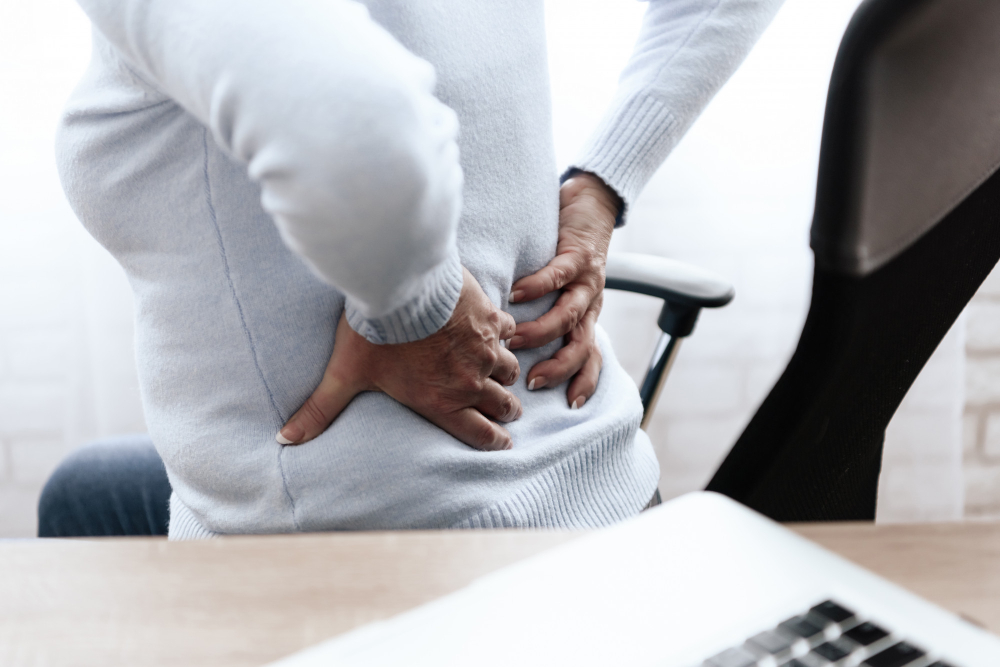
Have you been experiencing numbness, tingling, or pain in your back, neck, or arms? If so, disc herniation could be the culprit. A herniated disc is a common condition that affects people of all ages and lifestyles. While it can be painful and limiting, understanding the root causes can help you take actionable steps to prevent or manage it.
This blog will break down the top causes of disc herniation, how this condition impacts your spine's health, and what treatments you can explore for relief. If you’re in need of professional help, we’ll also guide you toward finding an orthopedic surgeon in Altamonte Springs, FL, who is committed to your recovery.
What is Disc Herniation?
To understand disc herniation, it’s essential to have a basic grasp of your spine’s anatomy. The spine is made up of small bones called vertebrae. Between these vertebrae sit rubbery cushions known as intervertebral discs. These discs act as shock absorbers, helping to support your body’s weight and facilitate movement.
A herniated disc occurs when the soft, gel-like center of one of these discs pushes through a tear in its outer layer. This can put pressure on nearby nerves, causing pain, numbness, or even weakness in other parts of the body.
Top Causes of Disc Herniation
1. Aging and Degenerative Disc Disease
As we age, the discs in our spine naturally lose water content, becoming less flexible and more brittle. This process, known as degenerative disc disease, weakens the outer layer of the disc, making it prone to tears or ruptures. Age-related wear and tear is one of the leading causes of herniated discs.
Preventive Tips:
- Maintain a healthy lifestyle, including regular exercise.
- Incorporate stretching and mobility exercises to improve spinal flexibility.
- Stay hydrated to keep your discs healthy and elastic.
2. Repetitive Motions
Jobs or activities that involve repetitive bending, twisting, or heavy lifting can put continuous strain on the spine. Over time, this can weaken the discs and increase the likelihood of herniation. Improper techniques, such as lifting with your back instead of your legs, can further exacerbate this risk.
Preventive Tips:
- Practice proper lifting techniques by bending at the knees and keeping the load close to your body.
- Use ergonomic tools and furniture to reduce strain during repetitive tasks.
- Take regular breaks to stretch and adjust your posture.
3. Traumatic Injuries
Accidents such as car crashes, sports injuries, or falls can cause a significant amount of pressure on the spine, leading to disc herniation. Even a sudden jerk or movement, like a sharp twist during exercise, can result in damage to your discs.
Preventive Tips:
- Always wear protective gear during physical activities or sports.
- Avoid abrupt, high-impact movements during workouts.
- Strengthen your core muscles to provide better support for your spine.
4. Obesity
Excess body weight puts additional stress on the spine, especially the lumbar (lower back) region. Over time, this extra pressure can lead to faster deterioration of the spinal discs, making them more vulnerable to herniation.
Preventive Tips:
- Maintain a healthy weight through a balanced diet and regular exercise.
- Focus on low-impact activities such as walking, swimming, or cycling.
- Work with a nutritionist if you need support in achieving your weight loss goals.
5. Genetics
Genetic predisposition can play a role in whether you’re more likely to experience disc herniation. If your family has a history of back problems or herniated discs, you may inherit a higher risk.
Preventive Tips:
- Stay proactive by maintaining spinal health through regular check-ups with a specialist.
- Engage in targeted physical therapy exercises to strengthen your spine.
- Be vigilant for early warning signs, like persistent back pain, and seek medical advice promptly.
6. Sedentary Lifestyle
Sitting for prolonged periods, especially with poor posture, can place significant stress on the spine and its discs. Sedentary habits reduce spinal mobility and increase stiffness, creating a ripe environment for disc problems to develop.
Preventive Tips:
- Switch to an ergonomic workstation setup.
- Stand, stretch, and walk around every 30 minutes to stay active.
- Incorporate regular spinal mobility exercises into your routine.
Symptoms and When to Seek Help
Herniated discs can manifest through a variety of symptoms, including:
- Persistent back, neck, or leg pain
- Numbness, tingling, or a pins-and-needles sensation
- Weakness in specific muscles
- Increased pain during certain movements, such as bending or twisting
If you’re experiencing any of these symptoms, it’s important to consult with a specialist. Ignoring the issue can lead to worsening symptoms or even permanent nerve damage.
Treatment Options for Disc Herniation
Fortunately, there are several effective treatment options for herniated discs. These range from conservative care to surgical interventions depending on the severity of your condition:
- Physical Therapy: Customized exercises can help relieve pressure on the affected nerves and improve mobility.
- Anti-Inflammatory Medications: Non-prescription medications can reduce pain and inflammation.
- Epidural Steroid Injections: These are used to provide longer-term relief from inflammation and discomfort.
- Minimally-Invasive Surgery: For severe cases, orthopedic surgeons can perform procedures like microdiscectomy to remove the herniated portion of the disc.
If you’re looking for an orthopedic surgeon in Altamonte Springs, FL, the Central Florida Bone & Joint Institute offers comprehensive services tailored to managing disc herniation and other spine problems.
Take the First Step to a Healthy Spine
Disc herniation can disrupt your quality of life, but the good news is that effective treatments are available. By understanding the common causes and taking proactive steps, you can manage or avoid this condition altogether.
If you’re struggling with back pain or need professional guidance, don’t wait. Contact Central Florida Bone & Joint Institute today to consult with an experienced orthopedic surgeon in Altamonte Springs, FL. Your spine deserves expert care.